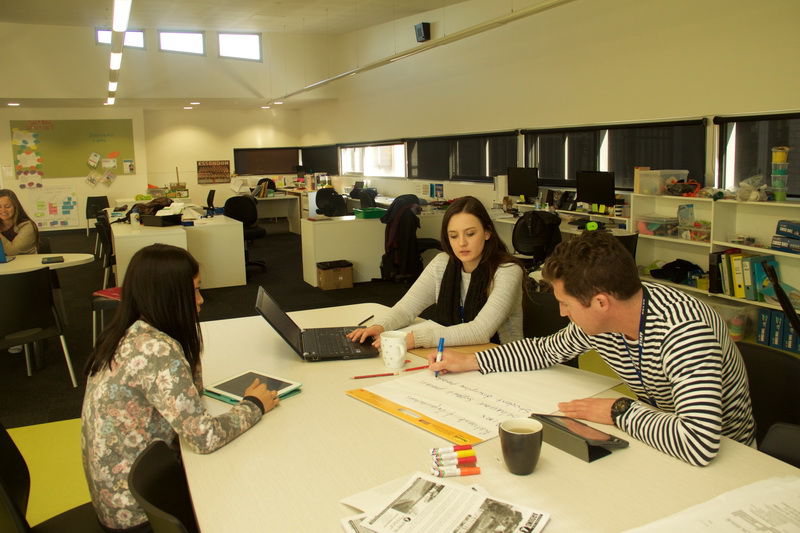About Us
| Jennings Street School located in the South Western Victoria Region at Laverton is a Prep to Year 12 autism-specific school situated adjacent to the Laverton P-12 College; providing potential opportunities as the school develops for shared educational programming and use of facilities. The school officially opened in 2015 and in 2017 reached its enrolment capacity of 120 students. The school’s Enrolment Policy provides detailed information around the eligibility criteria for enrolling students. The staffing complement comprises teachers, support staff and a multidisciplinary team of therapists who collectively deliver programs and interventions to address the complex needs of the students. | The school has 4 learning centres with programs tailored to the needs of students as they transition through stages of learning. Specialist programs include Phys Ed, Art, and Music. As students move through the school, programs within learning pathways are tailored to further develop skills and knowledge to support students beyond school. The school employs the Positive Behaviour Support Framework as the foundation for creating a safe and collaborative culture. |

Facilities
| Bright and spacious facilities have been designed to meet the needs of 21st century learners. Multi modal learning strategies incorporate technologies to cater to interests and maximise engagement in learning. A purpose built administration centre includes an open plan staff work area. The facility boasts a modern design, 15 classrooms include flexible learning spaces to cater for the diverse educational needs of students with autism. A common area hosts specialist programs including a large multi purpose room accessed for indoor sports and community functions. Specialist learning spaces include a music room, art room, science / tech room, Homecrafts room and Play Therapy space. A storage room has been re-purposed to create a sensory room. The school built a café / canteen facility to cater for the implementation of work readiness skills. Discrete play areas are enclosed by landscaped surrounds. |  |
Pedagogy
| High quality learning and teaching programs employ current research as it applies to the education of students with ASD. We use a pedagogical approach that targets social communication and emotional regulation. These strategies support students to regulate and improve their self-management, promoting greater success in negotiating their environment and engaging in learning. Self-awareness and development of social competencies is important learning for our students, this is driven through our Personal and Social Learning curriculum focus. A multi-disciplinary team approach focuses on therapists and teachers working collaboratively to explicitly teach self-regulation and social competencies. We employ a range of programs and interventions including play-based learning across all ages, learning to think flexibly in order to work with others, and learning about thoughts and feeling to regulate emotions. |  |
Operational Framework
| The Operational Framework reflects a multi disciplinary team of professionals, with all key roles underpinned by an Instructional Leadership Model. Leaders drive the schools strategic targets established to deliver improved student learning outcomes. Therapy provision is strengthened by an integrated service model, resourced across each of the Three Learning Centres. A combination of groupings and tailored resource allocations, promote engagement in learning with the sensory and academic needs of the learners important considerations. Middle level leaders facilitate weekly Professional Learning Teams enabling teachers to collaborate for 90 minutes. | They utilize data to drive learning inquiries and evidence basedinterventions to share and implement learning improvement. Learning Specialists, drive school improvement initiatives by modelling high quality instructional practice and high impact instructional strategies to colleagues. A coaching model supports teachers to build their instructional capacity with peer observation, reflection and feedback integral to the model. The vision for learning is promoted by high standards of professional engagement, a strong sense of collegiality and a culture of excellence. Differentiated learning and teaching is central to our work. |
